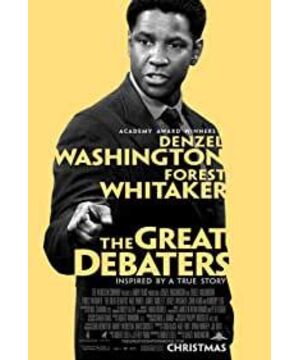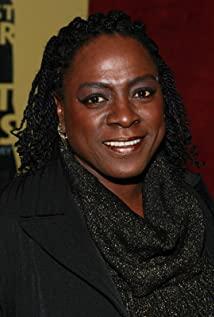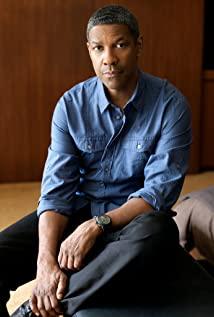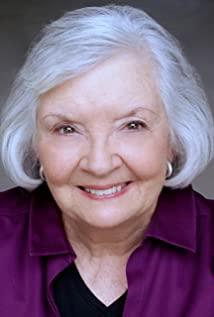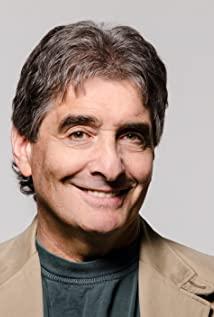just watched "the great debaters"
because of Denzel Washington, but ended up being overwhelmed by the arguments
in the film
Dictated back and forth from the last debate with Harvard
What a sonorous text I really adore the people who wrote these words must have more power in their hearts to change the world
Resolved:
Civil disobedience is a moral weapon in the fight for justice. But how can disobedience ever be moral? Well, i guess depends on one's definition of the word. In 1919, in India, 10000 people gathered in Amritsarto protest the tyranny of British rule. (There is a reference to the wiki, the history is too bad, eh-) General Reginald Dyer (the reflection of English names is still slow...) trapped them in a count yard and order his troops to fire into the crowed for ten minutes. 379 died. Men, women, children. Shot down in cold blood. Dyer said he had taught them a moral lesson. Gandhi and his followers responded not with violence but with an organized campaign of non-cooperation. Government buildings were occupied. Streets were blocked with people who refused to rise, even when beaten by police. Gandhi was arrested. But the British were soon forced to release him. He called it a moral victory. (In the movie, Heimer's father rescued Mel, same)
The definition of moral:
Dyer's lesson or Gandhi's Victory?
You choose.
Applause:
From 1914 to 1918, for every single minute, the world was at war.
Four men laid down their lives (didn't understand what this sentence means...), Just think of it. 240 young brave men were hurled into eternity, every hour of every day, of every night. (Eh, know he keeps saying 240 is emphasizing the huge number of casualties...but, you know, the protagonist Halo, even if the opponent is Harvard...) XXXX I skipped this paragraph, probably talking about the number of people who died, during this period. Here was a slaughter, immeasurable greater than what happened at Amritsar. Can there be anything moral about it? Nothing...Except that it stopped Germany from enslaving all of Europe. Civil disobedience isn't moral because it's non-violent. Fighting for your country with violence, can be deeply moral, demanding the greatest sacrifice of all; life itself. Non-violence is the mask civil disobedience wears to conceal its true face... anarchy.
Gandhi believes one must always act with love and respect for one's opponents. even of they are Harvard debaters. Gandhi also believes that law breakers must accept the legal consequences for their actions. Does that sound like anarchy? Civil disobedience is not something for us to fear. It is ,after all, an American concept. You see, Gandhi draws his inspiration not from a Hindu scripture. But from Henry David Thoreau, who i believe graduated from Harvard and lived by a pond not too far from here.
My opponent is right about one thing. Thoreau was a Harvard grad, and, like many of us, a bit self-righteous. He once said, "any man more right tan his neighbors constitutes a majority of one." Mr. Thoreau really has depth...) Thoreau the idealist could never know that Adolf Hitler would agree with his words.
The beauty and the burden of democracy is this: No idea prevails without the support of the majority. The people decide the moral issues of the day, not a majority of one.
Majorities do nit decide what is right or wrong. Your conscience does. So why should a citizen surrender his or her conscience to a legislator? No, we must never, ever kneel down before the tyranny of a majority.
Applause:
We can not decide which laws to obey and which to ignore. If we could i'd never stop for a red light. My father is one of those men that stands between us and chaos: A police officer. I remember the day his partner , his best friend, was gunned down in the line of duty. Most vividly of all, I remember the expression on my dad'a face. Nothing that erodes the rule of law can be moral, no matter what name we give it. ( When the Harvard debater said this sentence, his nostrils were slightly opened, and he really used his true feelings. I was persuaded by him, especially the last sentence. However, the premise is that the so-called law is justice. .)
Here comes the highlight! ! ! Lovely =-= Haimer II paused for a long time, his small eyes gurgling from side to side and listening to the people in the seat. I was waiting for his amazing words.
In Texas... they lynch Negroes. My teammates and I saw a man strung up by his neck and set on fire. We drove through a lynch mob, pressed our faces against the floorboard. I looked at my teammates, i saw the fear in their eyes...and worse, the shame. What was this Negro's crime that he should be hung, without trial, in a dark forest filled with fog? Was he a thief, was he a killer? Or just a Negro? Was he a sharecropper? A preacher? Were his children waiting up for him? And who are we to just lie there and do nothing? No matter what he did, the mob was the criminal. But the aw did nothing, just left us wondering why . My opponent says, nothing that erodes the rule of law can be moral. But there is no rule of law in the Jim Crow South, not when Negroes are denied housing, turned away from schools , hospitals and not when we are lynched.St. Augustine said, "An unjust law is no law at all," (This is a classic!!! It refutes what the Harvard debater said when his nostrils were slightly opened!! It was also what his dad said before!! —) which means I have a right, even a duty, to resist with violence or civil dis0bedience. You should pray i choose the latter.
BRAVO!!!!
I'm so tired...
don't spray!
salute~
View more about The Great Debaters reviews


